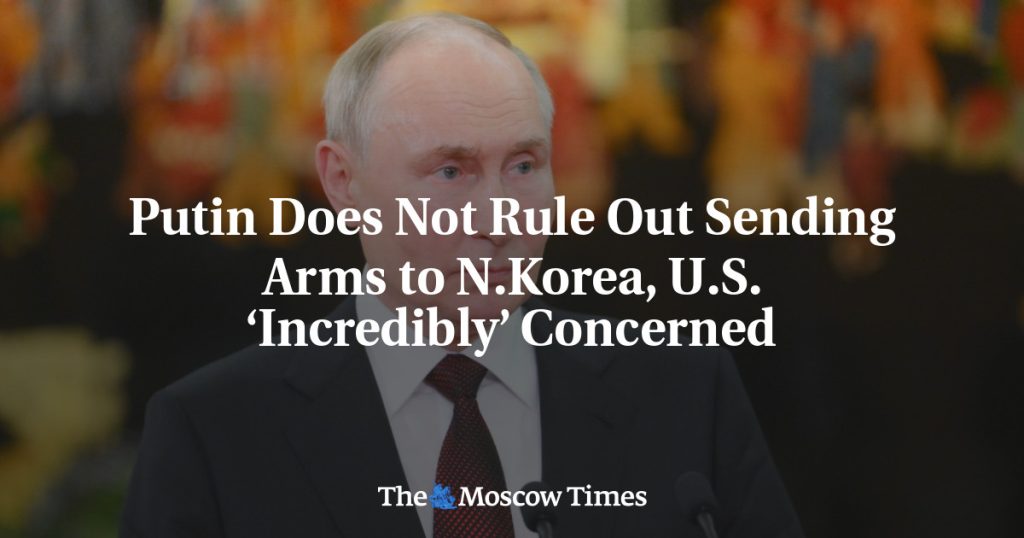The United States expressed deep concern over Russian President Putin’s threat to send weapons to North Korea, warning that such actions could potentially destabilize the Korean peninsula and violate UN Security Council resolutions. Putin’s recent visit to Vietnam, a long-time ally of Russia, aimed to bolster alliances and deepen ties between the two countries, particularly in defense cooperation. Despite not receiving as clear a declaration of support from Vietnam as he did in Pyongyang, Putin stated that talks were constructive and both sides had similar positions on key international issues.
Putin’s visit to North Korea came in the midst of new sanctions imposed by the United States, Britain, and the European Union to constrain Russia’s actions in Ukraine. During his visit, Putin signed a strategic treaty with North Korean leader Kim Jong Un, committing to come to each other’s aid if attacked. This has raised concerns among Washington and its allies as they accuse North Korea of supplying arms to Russia for its war in Ukraine. The treaty has further solidified the close relationship between Russia and North Korea, two countries that have been allies since World War II.
Kim Jong Un pledged his full support and solidarity over the Ukraine war to Putin, who has faced isolation on the global stage since Russia’s invasion of Ukraine in 2022. Ukraine’s President Zelensky’s senior aide characterized Putin’s visit to North Korea as a search for military support and allies among “yesterday’s satellites of the U.S.S.R.” In Vietnam, where Putin’s reception was more reserved, the country has carefully hedged its foreign policy position over the years, seeking to maintain friendships with all countries without aligning closely with any particular superpower.
Vietnam has notably avoided picking sides in the U.S.-China rivalry, a strategic move as both superpowers look to expand their influence in Southeast Asia. President Joe Biden’s visit to Hanoi in September aimed to promote ties and establish Vietnam as an alternative supplier of high-tech components to reduce American reliance on China. Chinese President Xi Jinping also visited Vietnam shortly after, highlighting the country’s importance in the region. The United States, Britain, and the European Union have announced new sanctions targeting Russia’s actions in Ukraine, while the G7 has agreed to provide a $50 billion loan to Kyiv using profits from frozen Russian assets.
In summary, Putin’s recent visits to North Korea and Vietnam have underlined the shifting alliances and power dynamics in the region. The United States has expressed concerns over Russia’s actions, particularly in relation to North Korea, while Russia continues to deepen its ties with traditional allies. Vietnam’s nuanced foreign policy stance has allowed it to maintain strong relationships with both superpowers, positioning itself as a key player in Southeast Asia. The ongoing conflict in Ukraine continues to shape global politics, with sanctions and diplomatic efforts aimed at curbing Russia’s actions. Putin’s visits highlight the complex web of alliances and rivalries in the region, with implications for peace and stability in the Korean peninsula and beyond.


